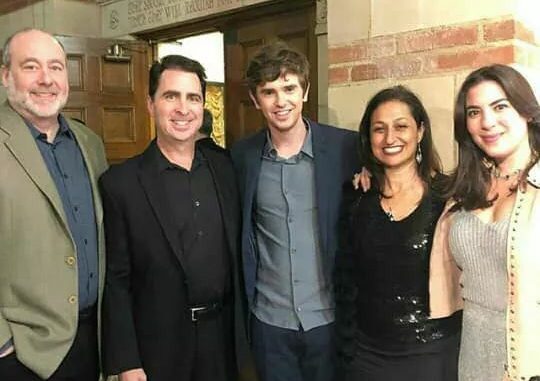
Shaun Murphy, a young surgeon with autism and savant syndrome, navigates a world that often misunderstands him. His condition shapes his interactions, leading to a directness that can be both disarming and revolutionary. In episodes addressing gender equality, Shaun’s unfiltered observations cut through workplace politics. For instance, when confronting disparities in how female colleagues are treated, Shaun’s logic-driven perspective exposes uncomfortable truths. Highmore’s portrayal captures this with remarkable subtlety—his wide-eyed curiosity and measured delivery make Shaun’s insights feel both innocent and incisive. These moments are not preachy; they’re organic, woven into the fabric of the show’s medical cases. Highmore’s ability to convey Shaun’s naivety alongside his unwavering ethics ensures that these scenes resonate deeply, urging viewers to reflect on their own biases.
Similarly, Shaun’s encounters with workplace harassment highlight his role as a catalyst for change. In one storyline, he witnesses inappropriate behavior and, true to his character, addresses it head-on, oblivious to social hierarchies. Highmore’s performance shines here, as he balances Shaun’s social awkwardness with a fierce sense of justice. The way he delivers Shaun’s matter-of-fact statements—often with a pause or a tilt of the head—makes these scenes both powerful and relatable. Highmore’s chemistry with co-stars like Antonia Thomas and Hill Harper amplifies the tension, as Shaun’s bluntness forces his colleagues to confront their own complicity. These interactions are not just plot points; they’re a call to action, showing how one person’s honesty can spark meaningful dialogue.
The Good Doctor excels at blending these social themes into its medical narrative without losing its emotional core. The show’s writers craft scenarios where Shaun’s ethical stands intersect with life-or-death medical decisions, creating a seamless narrative that keeps viewers hooked. For example, a case involving a patient’s treatment might parallel Shaun’s observations about fairness, allowing the show to explore social issues through a medical lens. Highmore’s ability to convey Shaun’s dual focus—solving complex medical puzzles while grappling with social dynamics—is nothing short of extraordinary. His performance ensures that Shaun remains relatable, not a caricature, making his advocacy for change feel authentic and inspiring.

Highmore’s portrayal is the heartbeat of these storylines. Shaun’s autism shapes his worldview, but it’s Highmore’s nuanced acting that brings depth to this perspective. He captures Shaun’s growth, showing how he learns to navigate complex social situations while staying true to his principles. In one memorable scene, Shaun’s insistence on fairness clashes with hospital bureaucracy, and Highmore’s subtle shifts in expression—from confusion to determination—make the moment unforgettable. This growth is a testament to the show’s long-term character development, as Shaun evolves from an outsider to a respected voice within the hospital. Highmore’s ability to portray this arc with authenticity keeps viewers invested in Shaun’s journey.
The series’ relevance to real-world issues makes it a standout. By addressing topics like gender equality and harassment, The Good Doctor challenges viewers to examine their own environments. Shaun’s perspective, unclouded by social pretense, serves as a lens for audiences to see these issues anew. Highmore’s performance elevates this, making Shaun’s advocacy feel both personal and universal. The show avoids heavy-handed messaging, instead using Shaun’s story to spark reflection. Whether it’s a quiet moment of Shaun questioning a colleague’s bias or a heated debate in the hospital boardroom, Highmore ensures that Shaun’s voice carries weight.
The supporting cast enhances these storylines, with Highmore’s interactions creating moments of tension and inspiration. His scenes with Richard Schiff, who plays Dr. Glassman, Shaun’s mentor, add emotional depth, as Glassman often guides Shaun through the complexities of social advocacy. Similarly, Shaun’s friendships with characters like Dr. Claire Browne provide a backdrop for exploring empathy and allyship. Highmore’s chemistry with his co-stars makes these relationships feel real, grounding the show’s social commentary in human connection.
